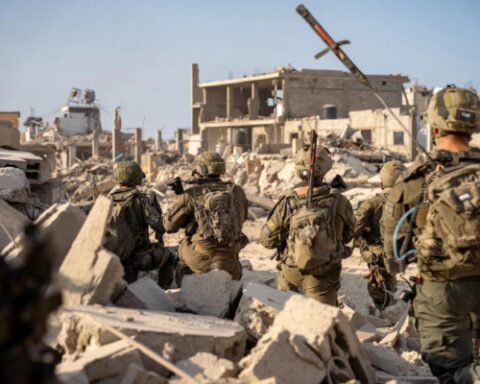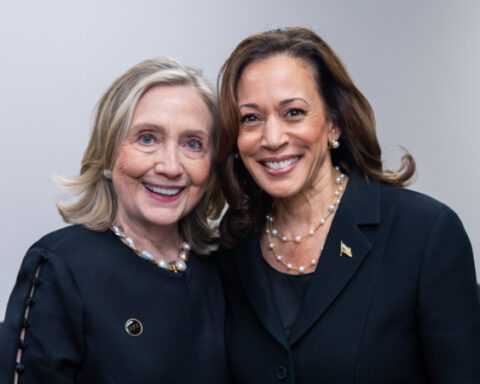Israeli and Hamas officials are reportedly finalizing the parameters of a cease-fire agreement, which may be published as early as Tuesday, according to Arab and Israeli sources.
This development raises prospects for a cessation of hostilities in the Gaza Strip and the release of some hostages held there.
Negotiators, including Steve Witkoff, President-elect Donald Trump’s appointed Middle East envoy, together with representatives from the U.S., Israel, and Arab nations, convened in Doha, Qatar, at lunchtime to finalize a draft agreement, according to Arab officials assisting in the mediation efforts.
The parties had reached consensus on the principal aspects of the agreement but continued to negotiate specific language hours into the meeting, including the timeline for the deal’s effectiveness and the implementation mechanism, according to Arab and Israeli officials.
Negotiations may collapse prior to completion, as previously experienced, both parties cautioned.
An Israeli official stated on Tuesday that this was the most significant round of negotiations between the two parties since the hostage agreement in November 2023. “We are near.” “We are not present,” he stated.
On Tuesday, Hamas announced that the agreement was in its final stages, marking the first instance of such a declaration.
Mohammed Sinwar, the Hamas commander in Gaza, where hostilities persist, has tentatively accepted the parameters of the agreement, according to Arab authorities.
Israeli hospitals and medical personnel are ready to accommodate hostages to be released as part of the agreement.
Numerous individuals are thought to be in dire condition due to arduous circumstances, including food and hygiene deprivation, torture by kidnappers, and the threat of Israeli airstrikes.
Mediators indicated that the release of hostages is anticipated to occur over a period of many weeks, at minimum.
Any agreement would require approval from Israel’s security cabinet and the entire government.
The initial phase of the agreement would suspend hostilities in Gaza and facilitate the release of certain Palestinian prisoners detained in Israel in return for the liberation of 33 hostages confined in Gaza.
The captives designated for release will comprise women, children, individuals with significant injuries, and those over the age of 50.
Hamas would additionally surrender deceased individuals.
An Israeli official stated that the country remains uncertain about the number of the 33 hostages intended for release in the initial phase of the agreement who are deceased, but believes that the majority are still alive.
The official stated that Israel cannot specify the number of Palestinian captives to be released at this time, as Hamas is demanding a greater number of living hostages in exchange for those deceased.
Israeli officials stated that Palestinian inmates convicted of murder will not be permitted to reside in the West Bank upon their release.
The Israeli source stated that the security procedures for those to be expelled from the Palestinian areas are currently under negotiation.
The militant organization consented that Palestinians, who have been incarcerated for extended periods, would depart from the Palestinian territory and reside in exile overseas with their families.
Hamas received verbal assurances from the U.S., Qatar, Egypt, and Turkey that Israel would persist in discussions for a permanent cease-fire following the conclusion of the initial phase of the agreement, according to Arab mediators.
In recent days, Israeli Prime Minister Benjamin Netanyahu has established significant political groundwork to facilitate a deal, including discussions with far-right ministers Itamar Ben-Gvir and Bezalel Smotrich, who have openly resisted ceasing hostilities against Hamas, a group designated as a terrorist organization by the U.S.
Netanyahu is scheduled to meet with the families of hostages on Tuesday, who have consistently accused him of neglecting the priority of securing the release of their relatives.
Numerous families are concerned about relatives excluded from the initial humanitarian phase of the accord.
[READ MORE: Senator Mark Kelly Calls for ‘Consequences’ Over Latest Chinese Hack]








